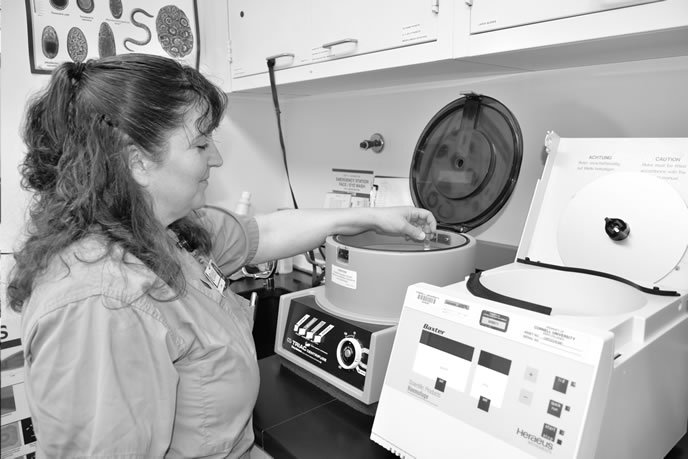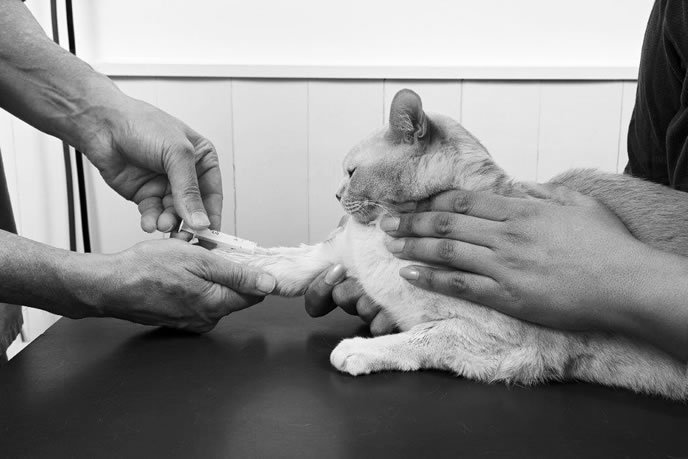In this age of high-tech veterinary tools like digital X-rays and color Doppler ultrasound, one humble blood test — a complete blood count — remains at the forefront of diagnosis. A single drop of blood contains millions of cells, and with a scant half teaspoon, your cat’s veterinarian can quickly identify nearly two dozen types of cells to diagnose conditions ranging from anemia and autoimmune disease to cancers and infections.
“Since our patients don’t speak, this bloodwork is an important way for us to peek into how their bodies are functioning and make sure there’s no disease process that hasn’t yet become obvious,” says Leni Kaplan, MS, DVM, a lecturer in the Community Practice Service at Cornell University College of Veterinary Medicine.
Bigstock

The Many Elements.
A CBC may seem a mysterious jumble of alphabet soup, but you can more easily understand it when you know a bit about the components of blood. Blood is a mixture of ingredients that the cardiovascular system — the heart, arteries, veins and capillaries — transports throughout your cat’s body. During its journey, blood carries oxygen and waste products, including carbon dioxide, which is exhaled via the lungs, and nitrogen, which is excreted by the kidneys.
Slightly more than half of blood is plasma, a pale yellow liquid consisting mostly of water. The remainder is made up of chemicals like enzymes, hormones and nutrients as well as red blood cells and platelets created in the marrow of larger bones, and white blood cells, some of which originate in the spleen or lymph nodes.

Veterinarians order CBCs when a cat exhibits fatigue or weakness, has a suspected infection or a disease causing inflammation. In some cases, results may indicate the need for additional tests, such as a urinalysis or imaging.
Don’t Stress. One caveat: CBC results are complex and inter-related. Don’t get stressed about one or two “off” results. Your cat’s veterinarian will explain if a potential health problem exists. “About 90 percent of CBC results do not reveal a cause for concern,” Dr. Kaplan says, “but it’s that 10 percent we’re trying to capture and address.”
Although results differ in kittens, adults and seniors, CBCs are important to check in healthy cats to establish a baseline for future reference. They’re particularly vital for seniors. Dr. Kaplan recommends, as part of a wellness exam, cats 8 to 12 years of age have a CBC annually and those 13 and over semi-annually.

CBCs are also necessary when monitoring the progress of chronic conditions. “They serve as a baseline prior to treatment,” says Dr. Kaplan. “Later we repeat the test looking for trends — how’s the cat responding? Is there a complication?”
The blood tests can also detect conditions that could be life-threatening for cats receiving anesthesia, alerting the surgeon to modify the anesthesia or the procedure.
In all cases, it’s wise to follow the veterinarian’s recommendation about when to have a complete blood count, Dr. Kaplan says. “It’s better to have a normal test than not do it and regret it later.” ❖



